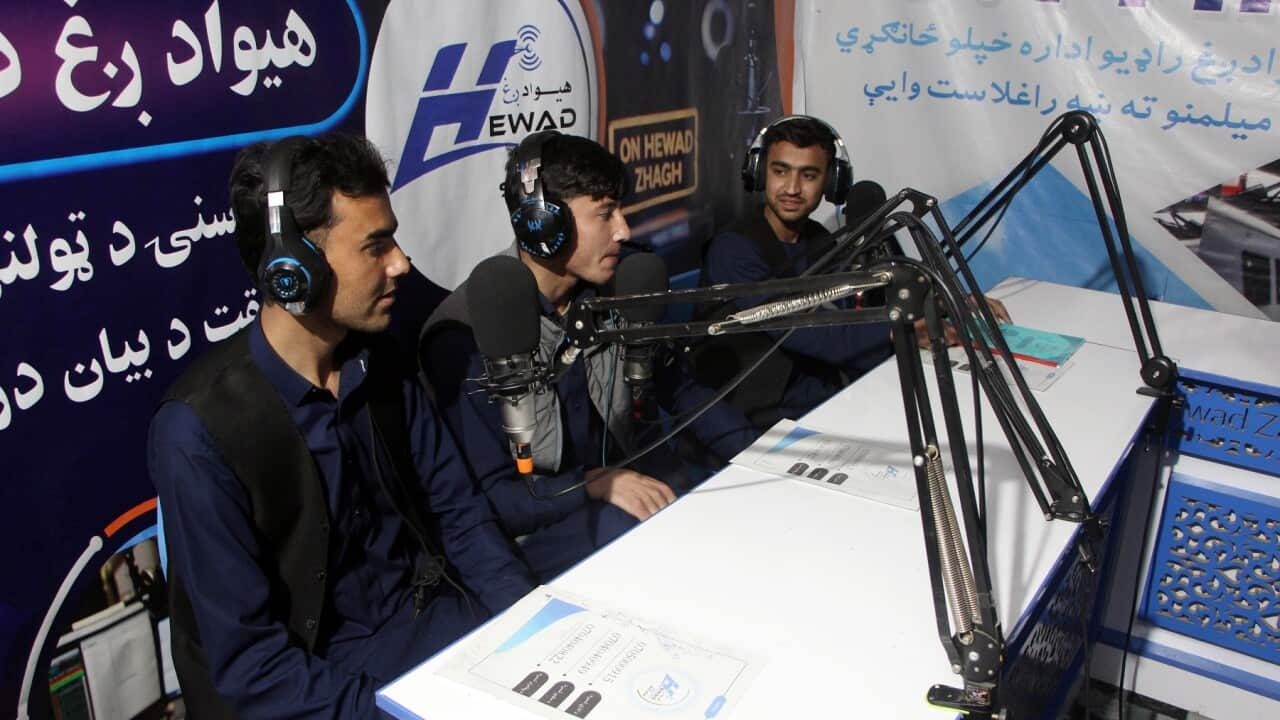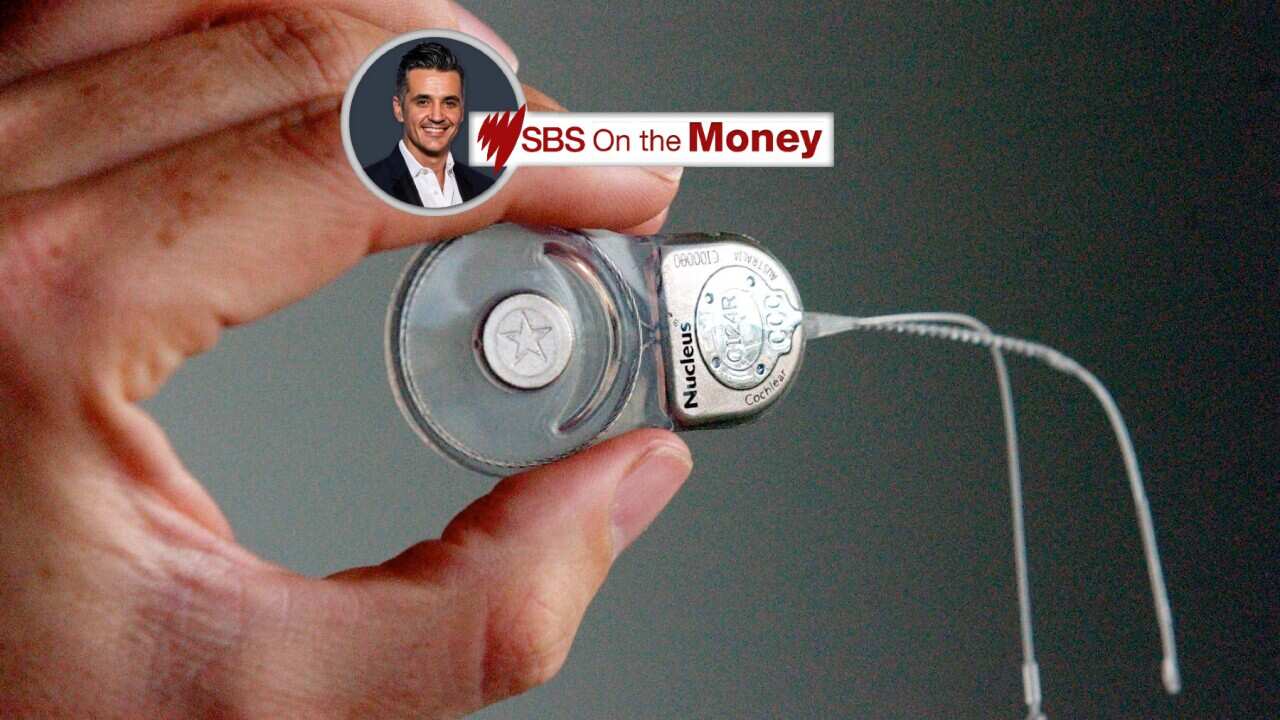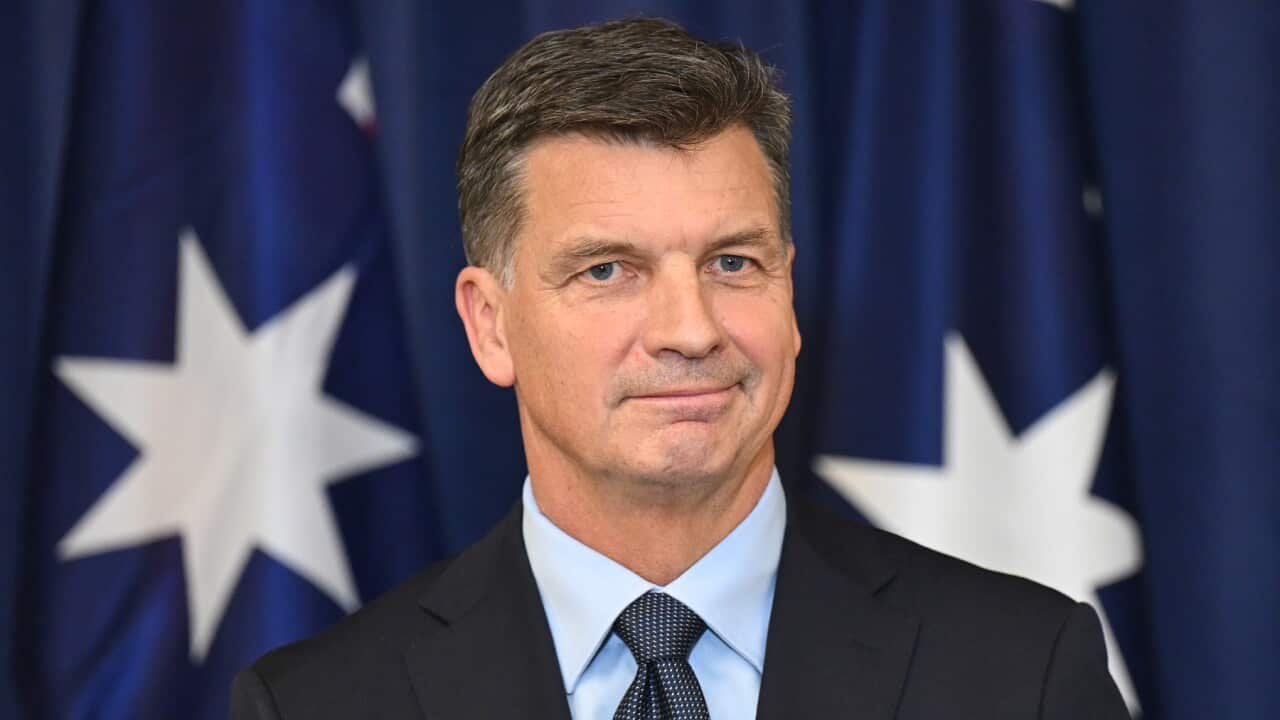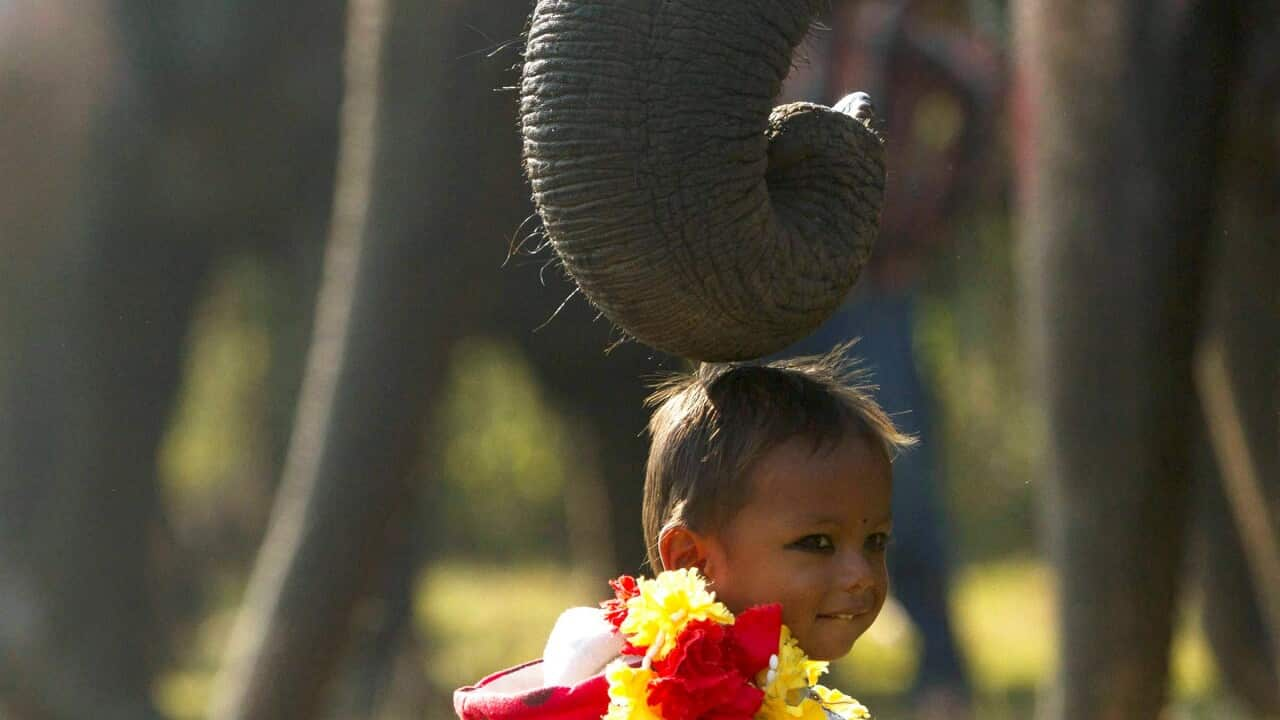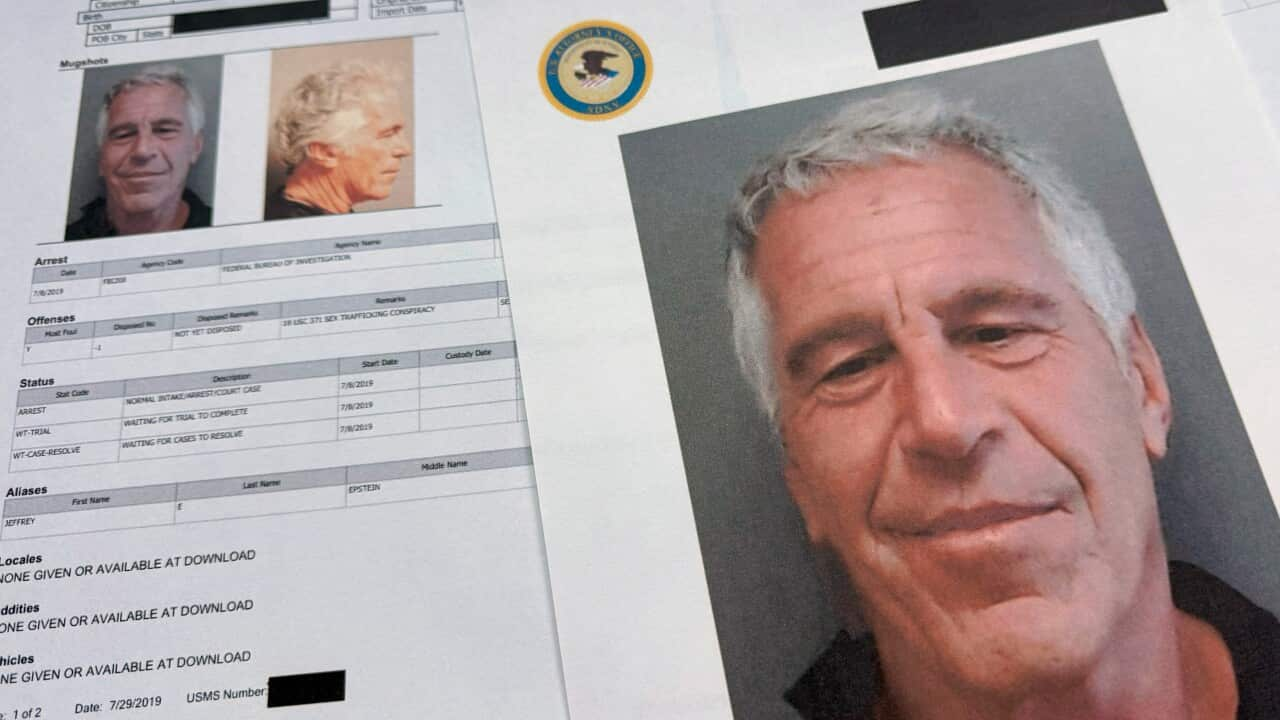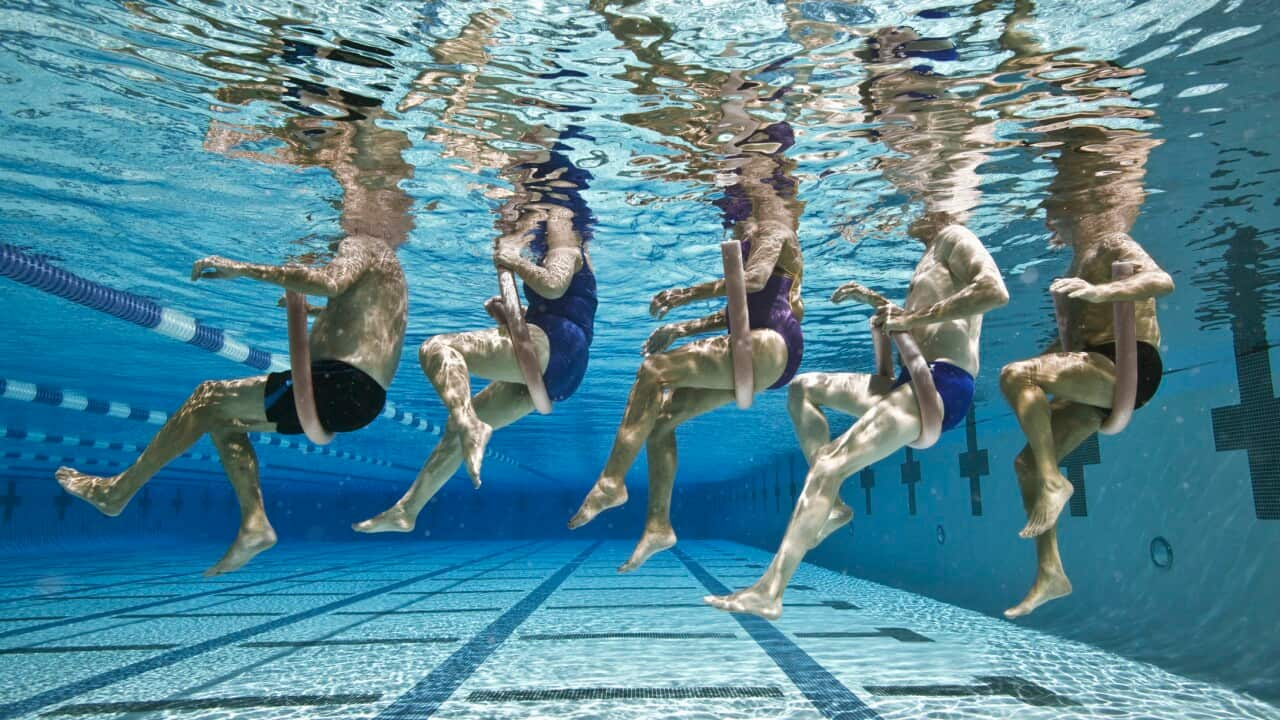Listen to Australian and world news, and follow trending topics with SBS News Podcasts.
TRANSCRIPT
High on the red rock ridges of Western Australia’s Burrup Peninsula, etched into the stone, are markings that date back tens of thousands of years in Murujuga.
They include sacred symbols and the oldest known carvings of the human face — a deep connection to ancestors and storylines.
The area is currently being considered for UNESCO World Heritage listing.
Last week, a long-awaited, peer-reviewed scientific report confirmed what Traditional Owners have long feared, that emissions from heavy industry are corroding these ancient artworks.
One of those speaking out is Mardudhunera woman and Traditional Owner of Murujuga, Raelene Cooper.
She’s launched legal action in the Federal Court, calling for a halt to the gas extension until heritage concerns are properly addressed.
"Money, money and destruction. They are trying to wipe away my history — the history of this place, what it stands for, for the people from here. This is Juukan Gorge, in slow motion. At the end of the day, no — the government doesn’t think of us at all. Other than that we are a minority of people."
Woodside’s North West Shelf Project is one of the world’s largest liquefied natural gas hubs.
Gas is extracted from three offshore platforms and piped to the Karratha Gas Plant.
From there, it’s processed and exported to Japan, South Korea and China.
It also supplies Western Australia with domestic gas.
But the project's current environmental approvals expire in 2030.
Woodside wants to keep it running for another 40 years, until 2070.
That plan was approved by the WA Government in December, but for months climate experts warned that extending the North West Shelf comes at a high environmental cost.
Greg Bourne is a former BP executive and now a Climate Councillor.
He once worked in the North West Shelf joint venture and says he’s alarmed by the scale of emissions at stake.
"There's sort of two parts to the emissions here. There's the emissions that will occur within Australia, which is around about 700 to 800 tonnes per annum. But when the LNG is burnt overseas, wherever it goes - whether that be Japan, Korea, China, over its life you're looking at 4 billion tonnes of carbon dioxide going up into the atmosphere, at a time when we should be cutting our emissions."
A spokesperson for Woodside says the project is nationally significant, delivering thousands of jobs and billions in taxes and royalties.
More than 2,000 workers are employed across the site — and over the past four decades of operation, it has generated over $40 billion in royalties.
"The deal we have to do if we are exporting products like these, is we have to work with the others to help the emissions come down. That supply chain has to reduce if we are to stop global warming."
With North West Shelf approved, Woodside’s controversies doesn’t end at the Burrup.
It also wants to tap the Browse Basin off the Kimberley coast.
The area is near Scott Reef, an ecologically sensitive marine sanctuary home to endangered pygmy blue whales and green sea turtles.
Sophie McNeil is a newly elected Greens MP in the WA Upper House and the party’s fossil fuels spokesperson.
"It's not just that this project is the largest new fossil fuel project in the southern hemisphere, or that it's a massive carbon bomb that our climate can't afford. It's that it's built on top of a pristine coral reef. You wouldn't dream of doing that on top of the Great Barrier Reef, you wouldn't dream of doing this in Queensland. But Woodside think they can get away with it because it's in a remote part of Western Australia."
Woodside insists the project is essential to provide long-term energy security for international partners and economic certainty for regional WA.

